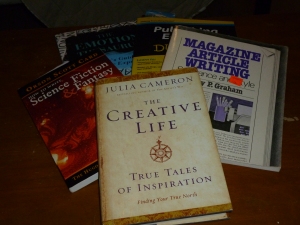“In the moment when I truly understand my enemy, understand him well enough to defeat him, then in that very moment I also love him.” – A.E. Wiggin
Warning: this post contains Ender’s Game spoilers; proceed with caution unless you’ve already read the book, seen the movie, or have no intention of doing either.

It’s a big scary world out there, Ender, full of aliens and homosexuals.
My husband and I went to Ender’s Game on Friday. I thought it was a beautiful movie, but I still left the theater feeling conflicted. I knew many people were boycotting the movie because of Orson Scott Card’s homophobia — which, as an attitude, could perhaps be forgiven, if he hadn’t also taken active steps to block GLTBQ people from enjoying full rights. It was later revealed that OSC won’t receive any money from box office sales, but many continued the protest on philosophical grounds. Others say to go ahead and see the movie if you want to, but just don’t buy OSC’s books. I have a fairly extensive collection of Orson Scott Card’s books, purchased back when I only knew him as a gifted storyteller and not as a homophobic bigot. Luckily, all my OSC books came to me through used book sales and Paperbackswap, so none of my money has made it back to him (and, by extension, into the anti-gay campaigns he supports).
I often don’t have to struggle with such cognitive dissonance about the entertainment I enjoy, because most creative types are pretty open minded people, especially writers of speculative fiction, where being able to imagine new and different worlds is a job requirement. But one thing that always frustrates me about “classic” science fiction (Ray Bradbury, H.G. Wells, Aldous Huxley, etc.) is that, although these authors could imagine vastly different worlds in terms of politics and technology, they could not imagine gender roles that went beyond the norms of the time they were writing in, leaving their female characters empty and one-dimensional. Orson Scott Card frustrates me in the same way.
In response to the boycott, Orson Scott Card issued a statement in which he said Ender’s Game had nothing to do with “gay rights” (my paraphrase) because they were not an issue when the book was written in 1984 (head in the sand much?). But Ender’s Game, which is ultimately a story about tolerance, remorse, and forgiveness, has plenty to say about prejudice–and that includes homophobia.
Ender is a powerful leader because he understands his enemies to the point of “loving” them. This is what keeps him from becoming brutal, although his mission requires violence. His biggest frustration when faced with the Formics (the alien “invaders”) is that he has trouble understanding them. But eventually, he does — and when he does, he feels such remorse over the genocide he unknowingly committed that he devotes the rest of his life trying to make it right.
In case you missed this, Ender found a way to understand and love an alien species that looked, thought, and communicated nothing like him, and that had wiped out millions of his people. If Orson Scott Card can imagine this feat of understanding, why can’t he make the comparatively tiny leap toward understanding people who fall in love with others of the same sex? Anyone who has fallen in love is already 98% of the way there. If you understand love, if you understand the desire to live a life free from hatred and discrimination, if you understand the desire to follow your heart, there’s not really anything else you need to understand about being gay. And yet, Orson Scott Card apparently cannot make that leap; and he puts his money and his activism into pushing others back from making that leap, too. Is this what Ender would do?
As the series progresses, we see that Ender’s remorse over his role in the Formic genocide leads him to a deeper understanding of all life. In Speaker for the Dead, he makes it his work to find the seeds of good in even the most seemingly “evil” of people, so that after life they can retain some dignity and be remembered as human beings rather than “monsters.” Again, if Orson Scott Card can theoretically make the leap and see “good” in someone who beats his wife and children, why can he not make the same leap to see the “good” in people who are not of his politcal/moral/homophobic persuasion?
Many people speculate that OSC is a “closet case” who feels that the current social order is the only thing “saving” him from giving into his own secret gay desires. While I’m not going to use this blog to speculate on his sexual orientation, he hasn’t left issues of gender ambiguity completely alone in his work. In Children of the Mind, Ender’s adopted son Miro finds himself attracted to “Young Valentine,” who is a projection of Ender’s mind. That means that Young Valentine essentially has Ender’s soul; she is not a real woman, but a man’s imagining of a woman, retaining something that is ultimately male. Miro reflects on this — does it mean that, underneath it all, he’s really attracted to Ender? He can’t shake his feelings for Young Valentine, even after this contemplation. Is it just me, or are things getting a little queer in here?
While the characters in the Ender’s saga attempt a “live and let live” philosophy toward alien races, viruses, and other humans, Orson Scott Card agitated to prevent his fellow human beings from having equal rights and equal dignity. To his credit, he’s willing to “let the case rest” now that the Supreme Court has ruled that forbidding same-sex marriage is unconstitutional (even though, in the past, he’s called to “overthrow” any government that would let such a thing happen.) But how much of this is him “taking it like a man,” and how much of it is his fear over how his homophobia might affect his pocketbook? He’s pleaded for “tolerance” of his views from those on the other side, just as he’s decided to “tolerate” them by no longer fighting against same sex marriage.
Let’s return to Ender’s Game. Although I love the story’s message, there remains a bit that rubs me the wrong way. And that is how quickly, how easily, Ender is forgiven for wiping out an entire sentient species by that very species. While human beings commit genocide to retaliate for millions who died in a past war, the Formic Queen forgives genocide and allies herself with the one who committed it as soon as she understands the depth of his remorse. Now, it seems that Orson Scott Card wants a similarly quick “forgiveness turnaround” from the GLTBQ community. But there’s one important difference: Orson Scott Card has expressed no remorse for the spiritual violence his activism has committed on millions of GLTBQ people and those who love them; instead, he’s simply decided to “let it go.” This is not enough. We have been “tolerating” homophobes forever — when was the last time you heard of gay people committing “hate crimes” against the people who spread hatred toward them? Despite fear rhetoric to the contrary, GLTBQ people have never tried to take away the rights of homophobic people — they just don’t want their homophobia imposed on secular institutions. That is tolerance, and those of us who support GLTBQ rights have been doling it for years. Orson Scott Card can have my “tolerance,” but he cannot have my respect, my admiration, or my money.
In Orson Scott Card’s crusade against homosexuality, he has committed a grave evil, just as Ender Wiggin has. The difference is that Ender immediately feels acute remorse, whereas Orson Scott Card seems to feel a smidgen of embarrassment. Asking for tolerance is not enough. To truly redeem himself, he must ask for forgiveness.




 Posted by Lacey Louwagie
Posted by Lacey Louwagie 


 I saw something similar happen with
I saw something similar happen with 
 I found out about the Authorquest about a month ago. I saw The Dark Crystal once as a little girl, and again as a teen. I was always intrigued by the world and I loved the puppetry. When I watched it again after deciding to enter the contest, I realized I’ve been having dreams about the
I found out about the Authorquest about a month ago. I saw The Dark Crystal once as a little girl, and again as a teen. I was always intrigued by the world and I loved the puppetry. When I watched it again after deciding to enter the contest, I realized I’ve been having dreams about the 
